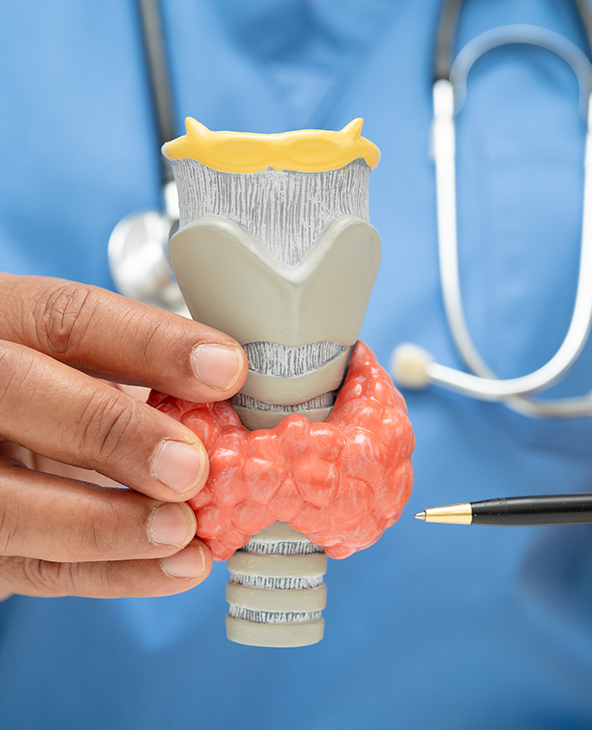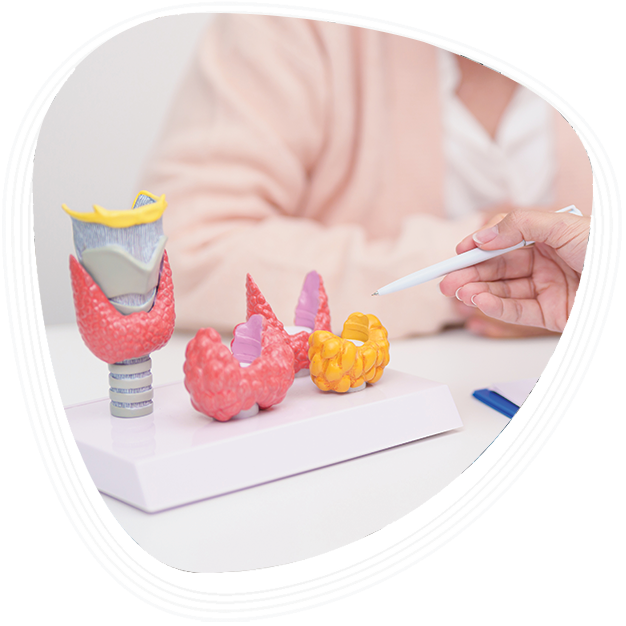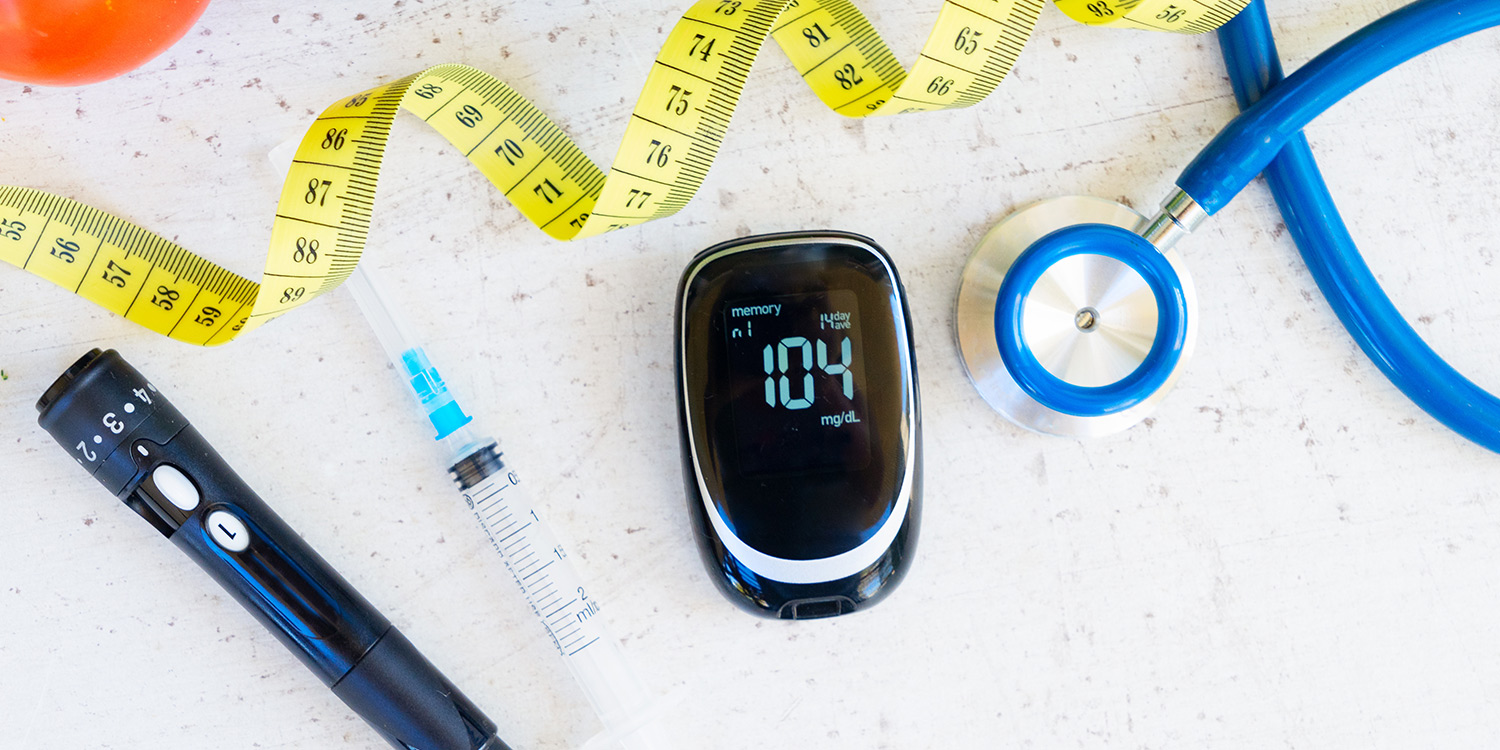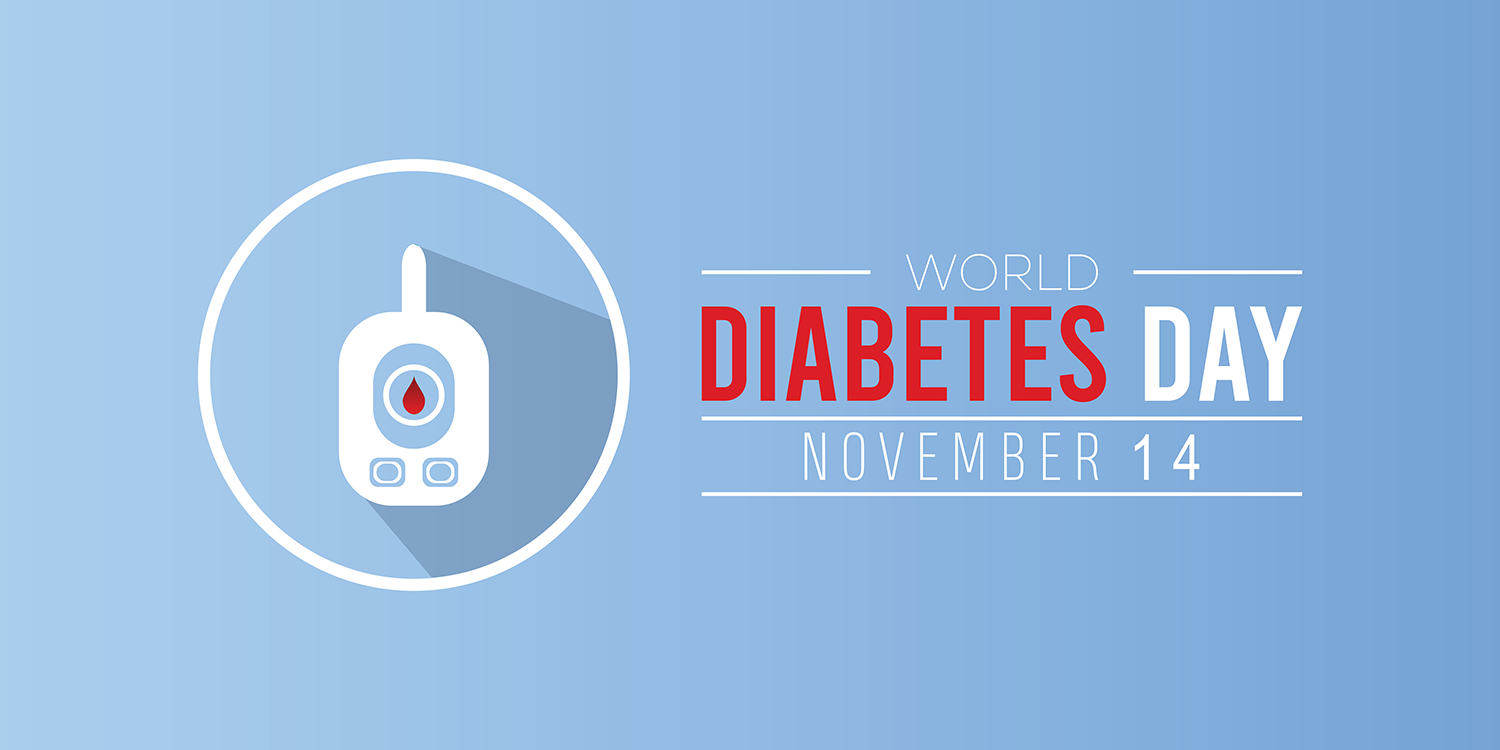Hyperthyroidism is one of the most common thyroid conditions, which strain the heart, bones, and energy levels. At Graphic Era Hospital, Dehradun, we understand how overwhelming thyroid problems can feel, especially when symptoms affect daily life and overall well-being. That’s why our team offers complete care for patients with suspected or confirmed thyroid disorders. Leveraging advanced diagnostic tests and personalised treatment options, including medicines, radioactive iodine therapy, and surgery, our team of endocrinology specialists ensures every patient receives accurate diagnosis and best possible treatment, ensuring optimal outcomes. Overall, our focus remains on restoring hormonal balance, preventing complications, and improving quality of life for patients across Uttarakhand.
What is Hyperthyroidism and How Does it Differ from Hypothyroidism?
Hyperthyroidism, often called an overactive thyroid, is a condition in which the thyroid gland produces more hormones, triiodothyronine (T3) and thyroxine (T4), than the body requires. These hormones regulate metabolism, energy use, and many vital functions. When present in excess, they speed up body processes abnormally. The condition can affect anyone, though it is more common in women. Without treatment, it may lead to complications involving the heart, bones, and overall health.

In contrast, hypothyroidism occurs when the thyroid gland produces too little hormone, slowing metabolism instead of accelerating it. While signs of hyperthyroidism include weight loss, rapid heartbeat, anxiety, and heat intolerance, hypothyroidism typically causes fatigue, weight gain, constipation, and cold intolerance. Recognising the difference between hyperthyroidism and hypothyroidism is essential, as treatment approaches for each condition are very different.
What are the Causes and Risk Factors of Hyperthyroidism?
Hyperthyroidism can develop due to medical conditions that affect the thyroid gland, as well as certain lifestyle and hereditary factors. The most common causes and risks include:
- Graves’ disease: An autoimmune condition where the immune system overstimulates the thyroid gland, leading to excessive hormone production.
- Thyroid nodules: Overactive nodules or lumps in the thyroid that release extra hormones.
- Excessive iodine intake: High levels of iodine in diet or medications can disrupt thyroid balance.
- Certain medications: Drugs such as amiodarone or interferon may alter thyroid function.
- Family history: A biological family history of thyroid disease increases the risk.
- Smoking: Raises the likelihood of thyroid disorders and worsens Graves’ eye disease.
- Pregnancy: Hormonal changes during or after pregnancy can sometimes trigger hyperthyroidism.
What are the Symptoms of Hyperthyroidism?
Hyperthyroidism affects many systems of the body, and symptoms may vary from person to person. Some signs are mild and easy to miss, while others are more noticeable and disruptive. Common symptoms include:
- Rapid heart rate (palpitations)
- Increased blood pressure
- Unexplained weight loss despite increased appetite
- Nervousness, anxiety, or irritability
- Tremors in the hands or fingers
- Excessive sweating and intolerance to heat
- Fatigue and muscle weakness
- Difficulty sleeping (insomnia)
- Menstrual changes in women
- Swelling or enlargement of the thyroid gland (goitre)
How is Hyperthyroidism Diagnosed?
Diagnosing hyperthyroidism involves a combination of physical evaluation, medical history, and specialised tests to confirm hormone imbalance. The main diagnostic methods include:
- Medical history and physical exam: Checking symptoms such as weight loss, tremors, or enlarged thyroid.
- Thyroid function tests (T3, T4, TSH): Blood tests to measure hormone levels and thyroid-stimulating hormone.
- Radioactive iodine uptake test: Determines how much iodine the thyroid absorbs, helping identify the cause.
- Thyroid scan: Provides detailed images of thyroid activity and structure.
- Ultrasound of thyroid gland: Detects nodules, swelling, or other structural abnormalities.
What are the Complications of Hyperthyroidism?
If left untreated, hyperthyroidism can lead to serious health problems that affect different parts of the body. Some of the major complications include:
- Heart problems: Irregular heartbeat (arrhythmia), palpitations, and in severe cases, heart failure.
- Osteoporosis: Excess thyroid hormone can weaken bones, increasing the risk of fractures.
- Eye problems: Graves’ disease may cause bulging eyes, double vision, and eye discomfort.
- Thyroid storm: A rare but life-threatening condition where symptoms worsen suddenly and require emergency care.
- Fertility and pregnancy complications: Untreated hyperthyroidism can lead to miscarriage, premature birth, or difficulty conceiving.
How is Hyperthyroidism Treated?
Treatment for hyperthyroidism is tailored to the patient’s age, overall health, and the underlying cause of the condition. The main treatment options include:
- Antithyroid medications: Drugs such as methimazole or propylthiouracil reduce thyroid hormone production.
- Radioactive iodine (RAI) therapy: Destroys overactive thyroid tissue, lowering hormone levels.
- Surgery: A thyroidectomy may be recommended in cases of large goitres, cancer suspicion, or when other treatments are unsuitable.
- Beta-blockers: These do not treat the cause but help control symptoms like rapid heartbeat, tremors, and anxiety.
Why Choose Graphic Era Hospital for Hyperthyroidism Treatment in Dehradun?

What is the Recovery & Management Process for Hyperthyroidism?
Recovering from hyperthyroidism often requires ongoing care, as treatment may need months or years of monitoring. Management focuses on keeping thyroid hormone levels stable and preventing complications. This usually involves:
- Regular monitoring: Routine blood tests to check T3, T4, and TSH levels.
- Long-term medication or follow-up after RAI therapy: Ensuring hormone levels remain balanced.
- Hyperthyroidism diet guidance: Avoiding foods high in iodine, such as seaweed or excessive iodised salt.
- Symptom management: Addressing issues like diarrhoea, insomnia, or anxiety with supportive care.
- Lifestyle changes: Adequate rest, stress management, and bone-strengthening measures to prevent osteoporosis.
Top Hyperthyroidism Treatments Available at Graphic Era Hospital
- Antithyroid medications
- Radioactive iodine therapy
- Thyroid surgery (thyroidectomy)
- Beta-blockers
- Long-term monitoring and follow-up care
Blog
Frequently Asked Questions (FAQs)
What is hyperthyroidism and how does it affect the body?
Hyperthyroidism is a condition where the thyroid gland produces excess hormones, speeding up metabolism. It can cause weight loss, rapid heartbeat, and fatigue if not treated.
What are the common symptoms of hyperthyroidism?
Signs include rapid heartbeat, weight loss despite good appetite, tremors, heat intolerance, irritability, and menstrual changes in women.
Can hyperthyroidism be cured permanently?
Some patients achieve long-term control or remission with treatment, but regular monitoring is essential. Radioactive iodine or surgery may provide permanent solutions.
What is the best treatment for hyperthyroidism?
Treatment depends on the cause and severity. Options include antithyroid medicines, radioactive iodine therapy, surgery, or beta-blockers for symptom relief.
Which doctor should I consult for hyperthyroidism in Dehradun?
Patients should consult an endocrinologist in Dehradun who specialises in thyroid disorders for accurate diagnosis and treatment.
Is hyperthyroidism more common in women?
Yes, women are more likely than men to develop hyperthyroidism, especially during pregnancy or after childbirth.
Can hyperthyroidism cause heart problems?
Yes, untreated hyperthyroidism may lead to arrhythmias, palpitations, or even heart failure in severe cases.
Is surgery always required for hyperthyroidism?
No, surgery is only advised in select cases such as large goitres, suspicion of cancer, or when other treatments are not effective.
Can diet and lifestyle changes help manage hyperthyroidism?
Yes, a proper hyperthyroidism diet that limits iodine-rich foods, along with stress management and rest, can support medical treatment.
Can hyperthyroidism affect pregnancy?
Yes, uncontrolled hyperthyroidism in pregnancy can cause complications like miscarriage, preterm birth, or high blood pressure, making early treatment essential.
How long does it take to recover after hyperthyroidism treatment?
Recovery varies. Some patients improve within weeks of treatment, while others need long-term monitoring to maintain normal thyroid function.
When should I see a thyroid specialist near me for hyperthyroidism?
Seek medical advice if you experience persistent weight loss, palpitations, eye changes, or difficulty tolerating heat, as these may signal uncontrolled thyroid disease.
How can I find the best hyperthyroidism treatment near me in Dehradun?
To find reliable hyperthyroidism treatment near you in Dehradun, look for a hospital with experienced endocrinologists, advanced thyroid testing facilities, and comprehensive care options such as medicines, radioactive iodine therapy, and surgery. Graphic Era Hospital offers specialised thyroid services with expert doctors and modern diagnostic technology, ensuring accurate treatment and long-term management for patients across Uttarakhand.
How can I book a doctor consultation at Graphic Era Hospital in Dehradun?
To book a consultation with an endocrinologist at Graphic Era Hospital, simply call at 1800-889-7351. The doctor will evaluate symptoms, perform necessary tests, and confirm whether you have hyperthyroidism or another thyroid condition before recommending treatment.





